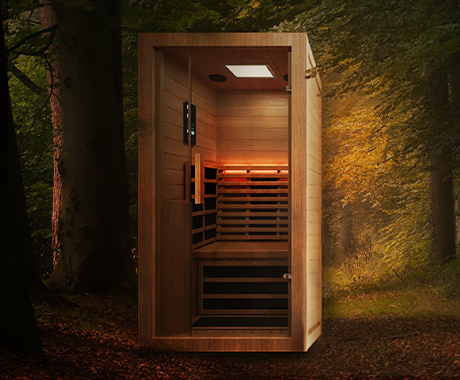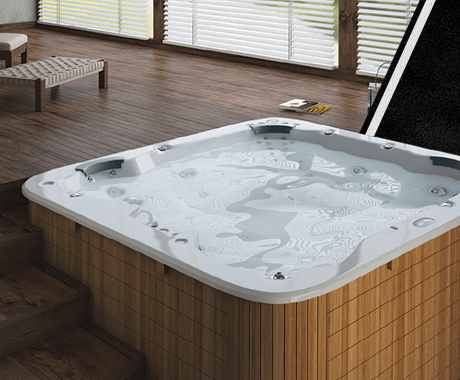Benefits of Cold Showers
Cold Showers
Vetted by
SocialBeat , Senior Architect, Delhi
May 23, 2023
While the idea of taking a cold shower may not sound appealing, the health benefits may make it worth considering. A cold shower, even for a few minutes, works as a cold therapy that helps your body heal and rejuvenate from your daily stress. From improving your physical health to boosting your mental well-being, here are 10 health benefits of taking cold showers that are sure to entice you to turn down the temperature on your next shower.
While most of us prefer taking a warm shower, there are several benefits of cold showers that you may be missing out on. So, next time you're feeling brave, consider turning down the temperature and reaping its benefits. Here are some of the potential benefits of taking a cold shower:
1. Boosts Immune System
Taking a cold shower is good for health as it can actually boost your immune system. When your body is exposed to cold water, it activates your immune system by increasing the production of white blood cells. These cells help fight off infections and diseases, making you less susceptible to illness. Additionally, cold showers can also increase the production of antioxidants, which help protect your cells from damage caused by free radicals.
2. Increases Alertness and Energy
Cold showers can also help increase alertness and energy levels. When you expose your body to cold water, your heart rate and breathing increase, which can help wake you up and make you feel more alert. Additionally, cold shower bath benefit include increasing the production of endorphins, which are natural mood boosters that can help improve your energy levels and overall sense of well-being. So, if you're feeling sluggish or tired, consider taking a cold shower to help give you a boost of energy.
3. Improves Circulation
A popular health benefit of cold shower is that your circulation improves throughout the body. When you expose your body to cold water, your blood vessels constrict, which can help improve blood flow and circulation. This can be particularly beneficial for those with conditions that affect circulation, such as Raynaud's disease or varicose veins. Improved circulation can also help reduce inflammation and promote healing in the body.
4. Reduces Muscle Soreness and Inflammation
Cold showers have been shown to reduce muscle soreness and inflammation, making them a great post-workout recovery tool. Cold water helps to constrict blood vessels, which can reduce swelling and inflammation in the muscles. Additionally, cold shower benefits your body by flushing out lactic acid, which can build up in the muscles during exercise and contribute to soreness. So, if you're looking for a natural way to ease muscle soreness and speed up recovery time, consider taking a cold shower after your next workout.
5. Supports in Weight Loss
Cold showers are good for overall health as they support your weight loss efforts. When exposed to cold temperatures, the body has to work harder to maintain its core temperature, which can increase metabolism and calorie burning. Additionally, cold showers can activate brown fat, a type of fat that burns calories to generate heat. So, if you're looking to shed some pounds, consider incorporating cold showers into your daily routine.
6. Reduces Stress and Anxiety
One of the common cold water bath benefits include reduced stress and anxiety levels. When you expose your body to cold water, it activates your sympathetic nervous system, which is responsible for the fight-or-flight response. This response releases endorphins, which are natural painkillers and mood boosters. Cold showers can also help regulate cortisol levels, which is the hormone responsible for stress. By reducing cortisol levels, you can feel more relaxed and less anxious.
7. Benefits of Cold Showers for Skin
Cold showers can be great for your skin! Cold water benefits the skin by helping tighten pores and reduce inflammation, which can lead to clearer, healthier-looking skin. Additionally, cold showers can help to improve circulation, which can bring more nutrients and oxygen to the skin cells. This can help to reduce the appearance of fine lines and wrinkles, and give your skin a more youthful glow. Just be sure to moisturize after your shower to keep your skin hydrated
8. Relieves localized pain
Cold showers can also help relieve localized pain. The cold water can reduce inflammation and swelling, which can help alleviate pain in specific areas of the body. This is why athletes often take ice baths after intense workouts or competitions. Cold showers benefits in reducing headaches and migraines by constricting blood vessels in the head and reducing inflammation. If you have a sore muscle or joint, try taking a cold shower to help reduce pain and inflammation.
9. Enhances Mood and Mental Clarity
Cold showers have been shown to boost mood and mental clarity. The shock of the cold water can stimulate the production of endorphins, which are natural mood boosters. Additionally, cold showers have been found to increase alertness and mental clarity, making them a great way to start your day. If you struggle with depression or anxiety, incorporating cold showers into your routine may be a helpful addition to your self-care regimen.
10. Keeps hair shiny
Cold showers benefits the appearance of your hair. Hot water can strip your hair of its natural oils, leaving it dry and brittle. Cold water, on the other hand, helps to seal the hair cuticle, locking in moisture and giving your hair a healthy shine. So, if you want to keep your locks looking luscious, try turning down the temperature in the shower.
11. Benefit of Cold Shower for Men
A crucial benefit of a cold shower for men is improved fertility by increasing sperm count and motility. Cold water can stimulate the production of testosterone, which is essential for male reproductive health. Additionally, cold showers can help to reduce the temperature of the testicles, which can improve sperm production and quality. So, if you're trying to conceive, taking cold showers may be a simple and effective way to improve your chances.
Health Considerations before taking Cold Showers
While cold water bath has many benefits, it’s important to consider any pre-existing health conditions before jumping in. People with certain medical conditions, such as Raynaud’s disease or cardiovascular disease, may not be able to tolerate cold showers. It’s always best to consult with a healthcare professional before making any drastic changes to your shower routine. Additionally, it’s important to gradually acclimate your body to cold showers, starting with shorter durations and gradually increasing the length of time.
Read Our Extensive Guide on How to Make Your Shower More Serene
Is Cold Water Bath Good for High Blood Pressure?
While cold water has many benefits, regulating high blood pressure isn’t one of them. Cold water baths or showers are recommended for individuals with high blood pressure. Cold water can cause blood vessels to constrict, which can increase blood pressure. Alternatively, hot shower benefits you more, especially regular sauna sessions can lower your blood pressure and even prevent heart strokes. Studies have shown that high temperature in a shower or sauna bath causes your blood vessels to dilate, which lowers blood pressure. So, next time if anyone is wondering if cold water baths are good for high blood pressure, you know the answer!
Read in Detail about What is Sauna Bath and its many Benefits
Now that we know all the health benefits of cold showers and when not to use it, let us read in detail about how cold showers have been used for therapeutic purposes. Cold therapy, also known as cryotherapy, is a therapeutic technique that involves exposing the body to cold temperatures in order to promote healing and reduce pain and inflammation. Cold therapy can be delivered through a variety of methods, including ice packs, cold water immersion, and cryotherapy chambers.
- Cold therapy works by causing vasoconstriction, which is the narrowing of blood vessels, and reducing blood flow to the affected area.
- It helps reduce swelling and inflammation, as well as numb the area, which can help to reduce pain.
- It can help to promote healing by stimulating the production of collagen and reducing oxidative stress.
- In some cases, it is used to treat acute injuries such as sprains and strains, post-surgical pain and swelling, arthritis, and muscle soreness.
- Cold therapy may also be used to enhance athletic performance by reducing muscle fatigue and improving recovery times.
It's important to note that cold therapy should be used with caution, especially if you have any pre-existing medical conditions or injuries. It's always a good idea to consult with a medical professional before incorporating cold therapy into your routine. In addition, excessive or prolonged exposure to cold temperatures can lead to tissue damage, so it's important to follow proper safety protocols when using cold therapy.
While cold therapy sounds enticing, if you do not want to invest in expensive cryotherapy chambers, you can enjoy cold water bath benefits within your shower enclosure. In the next section, we will discuss how you can use your own home shower for cold therapy.
How to Use Shower for Cold Therapy?
The benefits of cold showers can be effectively enjoyed in form of cold therapy and can be done easily at home. Here are five steps for using your shower for cold therapy:
- Start with a warm shower: Begin by taking a warm shower as you normally would. A good quality showerhead is important for this process as the right water pressure can make all the difference. This will help to open up the blood vessels and prepare the body for cold therapy.
- Gradually reduce the temperature: Once you have warmed up, gradually reduce the temperature of the water to a cooler temperature. Start with a temperature that is slightly cooler than you are used to, and gradually reduce it further over the course of a few minutes. We recommend installing a thermostatic valve that ensures that you get just the right temperature for your bath every time.
- Focus on affected areas: You can enjoy the benefits of cold shower by focusing on a specific area of the body, focus the cold water on that area. This can be done by holding the affected area under the cold water or by directing the cold water onto the area with a handheld multi-flow shower head set to its massage settings.
- Hold for a few minutes: Hold the cold water on the affected area for a few minutes, or as long as you feel comfortable. You may need to work up to longer durations over time.
- Gradually warm-up: Once you have finished the cold therapy, gradually warm up by increasing the temperature of the water. This will help to restore blood flow and prevent any discomfort or injury.
You can especially take this cold shower after a workout to settle your soreness and allow your muscles to relax.
An ice water bath, also known as cold water immersion, is a simple yet effective way to improve your physical and mental health. Cold water immersion has been used for centuries for its various health benefits. One of the main benefits of ice water baths is that they help to reduce inflammation and swelling in the muscles after intense exercise. The cold temperature causes the blood vessels to constrict, which helps to reduce blood flow and inflammation in the affected area. This can be particularly helpful for athletes or individuals who engage in intense physical activity, as it can speed up muscle recovery and reduce soreness.
Cold water immersion can also help to boost circulation in the body, which can help to deliver nutrients and oxygen to the muscles and other tissues more efficiently. This can help to improve overall physical performance, as well as enhance mental clarity and focus. Exposure to cold water has been shown to stimulate the production of endorphins, which can help to improve mood and reduce stress levels.
Another benefit of ice water bathing is that it can help to reduce pain and discomfort in the body. The cold temperature of the water can help to numb pain receptors, providing relief from sore muscles or other aches and pains. In addition, ice water baths can also help to improve sleep quality, as the body is better able to regulate its temperature during sleep.
Cold Shower After Workout
Taking a cold shower after a workout can be beneficial for reducing inflammation and muscle soreness. Cold water can help to constrict blood vessels and reduce swelling, which can speed up the recovery process. Additionally, the shock of the cold water can help to increase alertness and energy levels, making it a great way to start your day or boost your productivity after a workout. However, to reap the benefits of cold showers after a workout, it is important to gradually introduce cold showers into your routine and listen to your body’s signals to avoid any potential negative effects.
Hot Shower after Workout
Taking a hot shower after a workout can be beneficial for relaxing the muscles, promoting blood flow, reducing inflammation, de-stressing, and improving sleep. The heat from the shower can help to increase blood flow to the muscles, delivering nutrients and oxygen more efficiently, which can help to speed up muscle recovery and reduce soreness. Additionally, taking a hot shower can help to promote relaxation and reduce tension in the body, making it easier to fall asleep and wake up feeling refreshed.
Cold showers and hot showers have different effects on the body and can be beneficial in different ways.
| Cold Showers |
Hot Showers |
| Cold showers can help to increase circulation, reduce inflammation, and boost energy levels. | Hot showers, on the other hand, can help to relax the muscles, promote blood flow, reduce inflammation, and destress. There is no denying that hot showers in winters are just what you need to fight the cold weather. |
|
The cold temperature can cause the blood vessels to constrict, which can help to reduce blood flow and inflammation in the affected area. |
Hot shower benefits also include increased blood flow to the muscles, delivering nutrients and oxygen more efficiently, which can help to speed up muscle recovery and reduce soreness. |
| Common benefits of cold showers include stimulating the release of endorphins, which can help to improve mood and reduce stress levels. | Hot showers can also promote relaxation and reduce tension in the body, making it easier to fall asleep and wake up feeling refreshed. |
In the debate of cold showers vs hot showers, your choice will depend on personal preference and the specific needs of the individual. However, the right temperature matters the most when trying to reap the benefits of a cold shower or a hot one. Consider investing in a good quality instant water heater with temperature control to get the ideal temperature that suits your body.
These were all the potential benefits of taking cold showers including improved circulation, increased energy levels, reduced muscle soreness, and enhanced immune function. A good quality shower can rejuvenate you every day. However, it is important to note that cold showers may not be suitable for everyone and may cause discomfort or adverse reactions in some individuals.


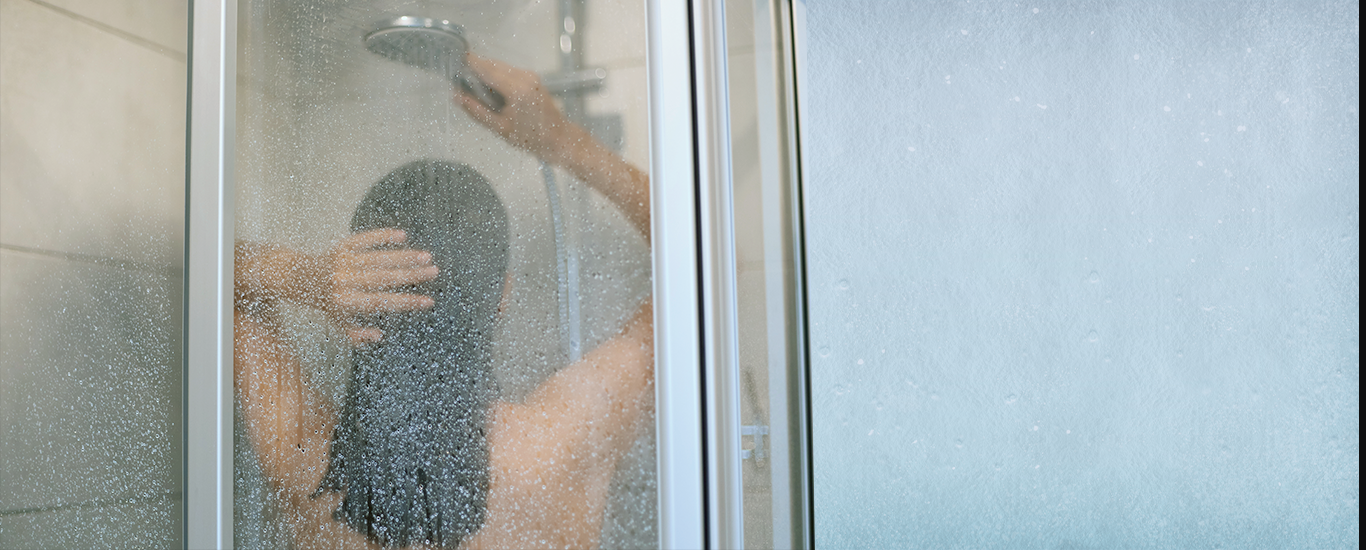
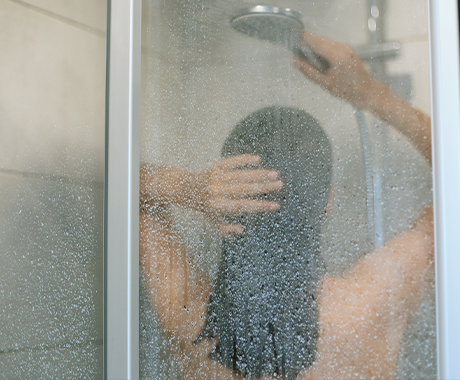


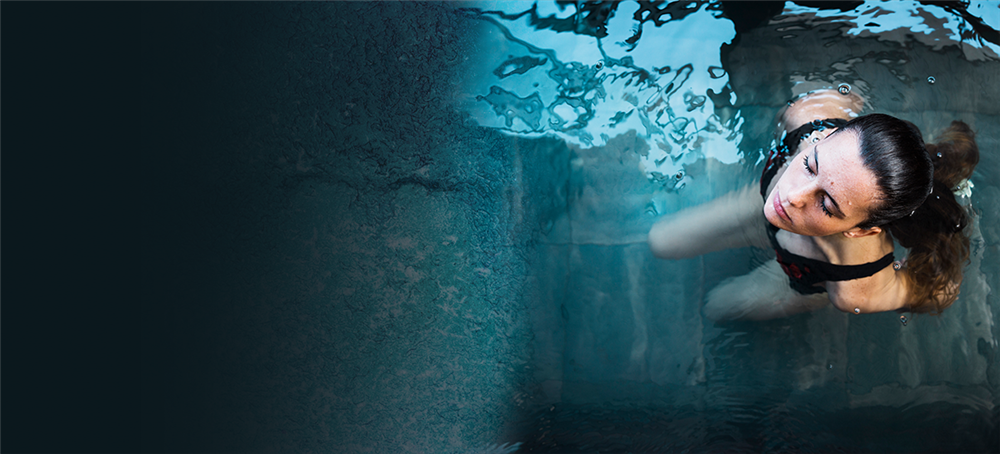
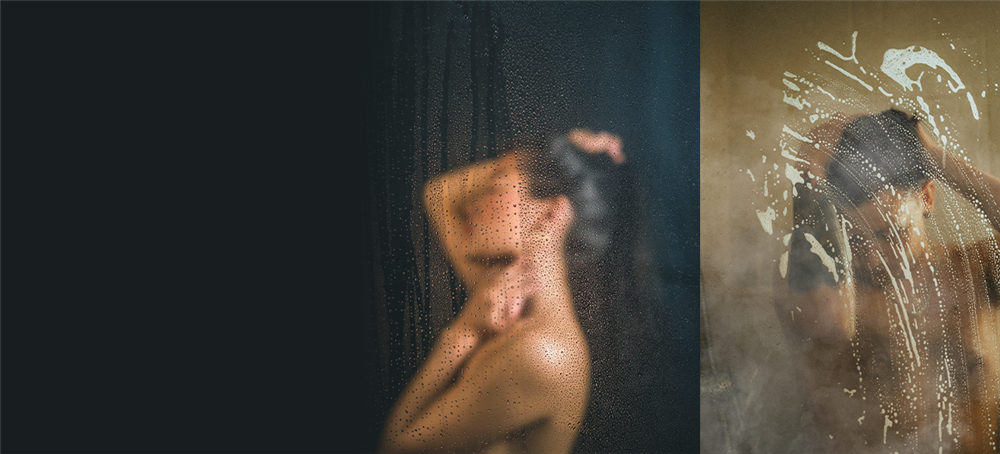
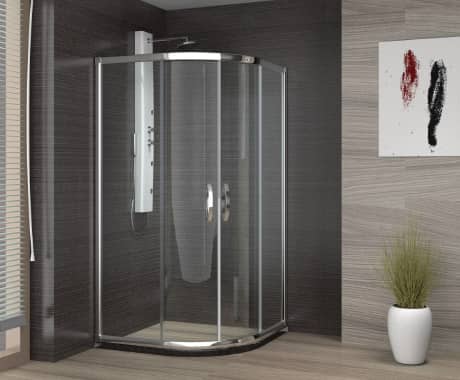

.jpeg)
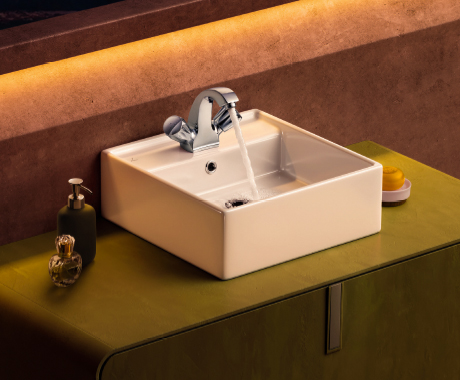
.png)

.png)
